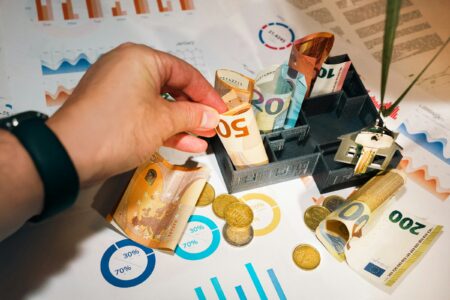02.07.2022
The President requested a meeting with the Ministers of Energy and Finance, the Cyprus Energy Regulatory Authority (CERA) and the Cyprus Electricity Authority (EAC) on Friday demanding a reduction in the price of electricity. It has risen sharply this year and, given global developments in the oil sector, it is expected to increase further by the end of this year and likely in 2023.
The global shortage of diesel and fuel oil, exacerbated by the war in Ukraine and sanctions on exports of Russian oil and petroleum products at a time of rising demand, is pushing prices even higher compared to the inexorable rise in Brent crude, which hit $118 a barrel on June 28. The inevitable result is that electricity prices must increase.
The unfortunate result of this is that public finances are doing better than budgeted by collecting rising energy tax revenues as electricity and energy prices in general rise—a cost, of course, to the beleaguered consumer. According to Eurostat statistics, in the second half of 2021, the average electricity price for Cypriot households was 23 cents/kWh, of which a whopping 37% was taxes. Comparative figures respectively for Greece were 19.5 cents/kWh and 20 percent, and for Malta 13 cents/kWh and 5 percent. All within EU tax rules. The increase in electricity prices in Cyprus last year was the third largest in Europe, more than three times the EU average.
The government also collects revenue from the European Emissions Trading System (ETS). With an average price of around 83 euros per tonne of CO2 this year, such revenues are expected to reach around 250 million euros by the end of 2022, and possibly more if this average rises further, as analysts expect. This is almost 250% more than in 2021.
As a result, as electricity bills rise, so does government revenue from higher ETS fees, which are once again paid by the hard-pressed Cypriot consumer. Not surprisingly, the state is seeing a significant fiscal “improvement” so far in 2022. Although the 2022 budget had budgeted a deficit of 1.3% of GDP, it reported a surplus of 1% by May of this year. This implies an annual “improvement” in the 2022 budget of 2.3 percentage points of GDP, or about 575 million euros. Much of this appears to be the result of increased tax and tax revenues from the energy sector.
If the state is satisfied with the budget deficit of 1.3% of GDP approved in December 2021, then in these difficult times it should seriously consider using if not all, then at least a significant part of this unexpected and unplanned 575 euros . millions of “surprises” to help those who suffer as a result of having to pay extra expenses.
Offers
In this period of energy price crisis for Cypriot households, I suggest that the government urgently consider the use of these “windfall” incomes by implementing the following:
1. Reduced VAT on electricity to 5 percent.
2. No VAT on the cost of emission permits.
3. Significant reduction of all other taxes on electricity, preferably to 0 percent.
4. Use 50% of ETS revenue to upgrade the grid and introduce renewable energy and batteries.
5. Use most of the remaining 50 percent of PTS revenues to help vulnerable households cope with the very high cost of energy.
This is in line with the European Commission’s recommendation that “the immediate priority should be to address the social impacts [of the energy crisis] and protect vulnerable households, ensuring that energy poverty does not worsen. Higher-than-expected ETS earnings enable this to happen.”
Upgraded electrical grids are critical to the energy transition to ensure a continuous and reliable flow of electricity and enable greater integration of renewable energy sources. Cyprus’ aging electricity grid is in urgent need of investment and modernization if it is to become usable. The necessary funding is available through the proper use of ETS revenues.
The government should also promote measures to reduce energy consumption and reduce electricity bills through an active television campaign. According to the International Energy Agency (IEA), these may include:
1. Reduce heating and use fewer air conditioners. Reducing the temperature of home thermostats by 1°C can reduce heating energy consumption by 7%. Installing air conditioners 1°C higher can reduce electricity consumption by almost 10% per year.
2. Work from home whenever possible.
3. Swim in the pool.
4. Eat slower. Reducing the average speed on highways by 10 kilometers per hour can reduce fuel costs. The IEA notes that “driving too fast is inefficient for a car’s engine and wastes fuel.”
5. Try car-free Sundays.
6. Walk or bike. On short trips, walking or cycling can reduce air pollution and congestion, and make people healthier.
7. Use public transport whenever possible.
Saving energy is the fastest and cheapest way to deal with the current energy crisis and cut your electricity bills.
The new EU strategy REPoweR provides for measures to accelerate the issuance of permits for the construction of solar and wind farms. It also requires rooftop solar panels to be mandatory for all new buildings.
Europe has placed electricity and renewable energy sources (RES) at the forefront of this process. Cyprus should do the same in all sectors of its economy. A new EU “Energy Deal” could be written for Cyprus. It must be fully implemented, and the necessary policies for this must be developed as a matter of urgency.
According to this Agreement, the key to reducing Europe’s dependence on fossil fuels is a range of measures, such as electricity and renewable energy, as well as improving energy efficiency. This will be achieved by increasing investment, removing barriers to the spread of renewable energy and enabling consumers to play an active role in the energy market.
EU member states such as Cyprus are expected to ensure that “investment in renewable energy and associated electricity infrastructure is considered in the public interest and should be supported by the most favorable planning and licensing procedures.” This includes competitive bidding to bring renewable energy prices down to levels achieved in other countries.
Member States should also consider and simplify “overly complex administrative procedures, such as licensing and permitting procedures, that delay investment in renewable energy.”
Cyprus should accelerate the implementation of these measures.
Charles Ellinas is Senior Fellow at the Atlantic Council Global Energy Center
















